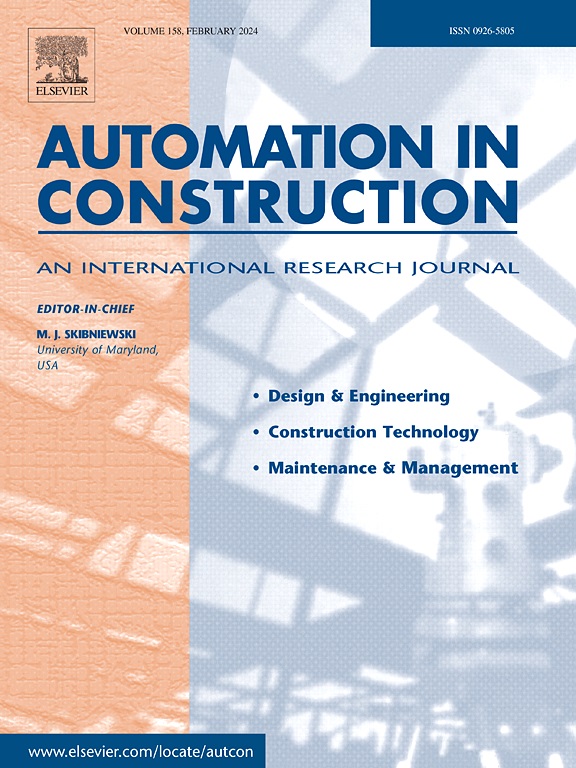Decision support for railway track facility management using OpenBIM
IF 9.6
1区 工程技术
Q1 CONSTRUCTION & BUILDING TECHNOLOGY
引用次数: 0
Abstract
Despite rapid advancements in track condition assessment technologies, current railway track facility management (FM) often results in cost-ineffectiveness as well as maintenance- and operation-inefficient outcomes. However, the challenges in current practice and the requirements for enhancing track FM decision-making processes have not been identified in a comprehensive and structured manner by any existing study. To address this gap, case studies and interviews were conducted to identify the challenges, along with the necessary information and functions. Based on these findings, a conceptual decision-support framework for railway track FM, utilizing openBIM, was proposed. This framework addresses data integration, track condition diagnosis, root cause identification considering the interrelationships among multiple components, long-term deterioration prediction, and FM plan optimization. A focus group interview was also conducted, and existing studies were examined to validate the proposed framework, which was found to support informed decision-making for railway track FM, thereby enhancing predictive maintenance.
利用 OpenBIM 为铁路轨道设施管理提供决策支持
尽管轨道状况评估技术突飞猛进,但目前的铁路轨道设施管理(FM)往往导致成本效益以及维护和运营效率低下的结果。然而,现有研究尚未以全面和结构化的方式确定当前实践中的挑战以及加强轨道设施管理决策流程的要求。为了填补这一空白,我们进行了案例研究和访谈,以确定挑战以及必要的信息和功能。在这些研究结果的基础上,提出了一个利用开放式建筑信息模型(openBIM)的铁路轨道 FM 概念决策支持框架。该框架涉及数据整合、轨道状况诊断、考虑到多个组件之间相互关系的根本原因识别、长期劣化预测和 FM 计划优化。此外,还进行了一次焦点小组访谈,并研究了现有研究,以验证所提出的框架,结果发现该框架可支持铁路轨道维护的知情决策,从而增强预测性维护。
本文章由计算机程序翻译,如有差异,请以英文原文为准。
求助全文
约1分钟内获得全文
求助全文
来源期刊

Automation in Construction
工程技术-工程:土木
CiteScore
19.20
自引率
16.50%
发文量
563
审稿时长
8.5 months
期刊介绍:
Automation in Construction is an international journal that focuses on publishing original research papers related to the use of Information Technologies in various aspects of the construction industry. The journal covers topics such as design, engineering, construction technologies, and the maintenance and management of constructed facilities.
The scope of Automation in Construction is extensive and covers all stages of the construction life cycle. This includes initial planning and design, construction of the facility, operation and maintenance, as well as the eventual dismantling and recycling of buildings and engineering structures.
 求助内容:
求助内容: 应助结果提醒方式:
应助结果提醒方式:


